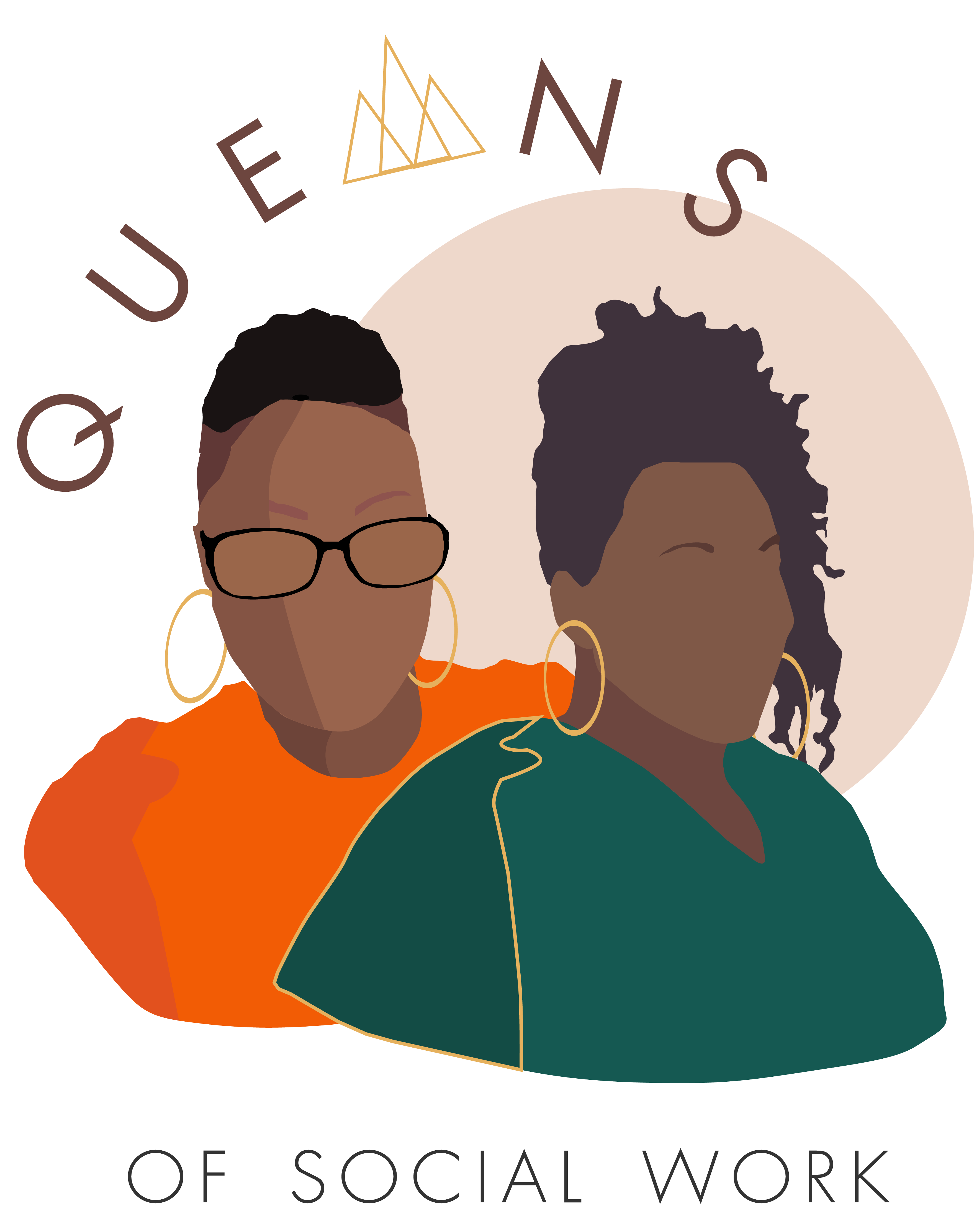Black women in social work are often at the frontlines of care, holding space for everyone else while managing systemic pressures, cultural expectations and workplace demands. The result? Burnout, compassion fatigue and an overwhelming sense that there’s never enough time—or energy—to care for ourselves.
At the Queens of Social Work, we’ve heard your voices loud and clear. In a recent Instagram poll, many of you said finding work/life balance is one of your biggest challenges. You’re not alone—and this blog post is here to support you with realistic, detailed strategies that speak directly to our lived experiences.
Why Work/Life Balance Feels So Hard for Black Women in Social Work
Before we jump into strategies, let’s name the truth:
-
We face a unique intersection of systemic racism, gender bias and workplace exploitation.
-
We’re often expected to be strong—for our clients, our families and our communities.
-
We carry emotional labor in both our professional and personal lives.
-
We work in under-resourced settings where support is minimal and expectations are high.
Sound familiar?
7 Real-Life Strategies for Reclaiming Balance Without Guilt
These aren’t vague tips about “just resting more.” This is about reclaiming your time, energy and peace in a system not designed with you in mind.
Set Clear Professional Boundaries—and Stick to Them
- Use your out-of-office responder after hours. Set it and forget it.
- If you’re salaried, track your hours. Many of us overwork because we don’t realize how much time we’re giving.
- Have a script ready for saying no to last-minute “favors” that fall outside your role.
💡 Tool Tip:
Use a scheduling app like Calendly to block off time for documentation, breaks and personal tasks so your calendar reflects your true workload.
Create a “Decompression Ritual” After Work
Transitioning from work to personal life is hard when you’re emotionally exhausted. Build a simple ritual to shift gears:
-
Change clothes immediately when you get home
-
Listen to a favorite podcast (like ours!) on your commute
-
Journal for five minutes or light a calming candle
💡 Tool Tip:
Use a mood-tracking app like Daylio or Reflectly to notice patterns in your stress and joy.
Schedule Regular “Do-Nothing” Time
Yes, you read that right. Black women are often taught to earn rest. It’s time to unlearn that.
-
Block off 1-2 hours a week where you’re not cleaning, helping, fixing or producing
-
Add it to your calendar like a meeting
-
Communicate to those around you that it’s non-negotiable
💡 Tool Tip:
Try the Pomodoro Technique for focused work + intentional breaks. Apps like Focus To-Do make it easy.
Get Real About Financial Boundaries
Many of us take on extra work, side hustles or skip vacations because we’re financially overextended or underpaid.
-
Review your pay rate and ask: Is this sustainable?
-
Advocate for a raise or research better-paying roles (we promise they exist!)
-
Use budgeting tools like YNAB (You Need a Budget) or Zeta (great for Black women and families)
Say No to “Strong Black Woman” Conditioning
We love our strength, but it shouldn’t be a prison.
-
Vent without apologizing. Feel without editing. Cry without shame.
-
Find or build community with other Black women social workers
-
Choose ease when possible, not just survival
💡 Tool Tip:
Check out Therapy for Black Girls or Clinicians of Color to find therapists who understand your journey.
Lean Into Professional Support Systems
- Join or create a support group or peer circle with other BIPOC social workers
- Look for supervision that centers your identity, not just your license
- Attend professional development sessions that feed your spirit, not just your resume
💡 Tool Tip:
Follow social work-related Instagram accounts (like ours @queensofsocialwork)
Define What “Balance” Means for You
Balance doesn’t mean 50/50 every day. It means feeling grounded in your own rhythm.
Ask yourself:
-
What makes me feel restored?
-
What am I doing out of obligation vs. joy?
-
What’s one small shift I can make this week?
You Deserve Rest and Joy, Too
Finding work/life balance isn’t selfish. It’s revolutionary. It’s how we protect our longevity in this field, how we model healthy boundaries for our clients and how we honor the fullness of who we are.
If no one has told you lately: You deserve a life that feels good, not just a career that looks good.
Want More Support? Start Season 9 With Us
If you’re new to the Queens of Social Work Podcast or returning after a break, we invite you to listen to Season 9, Episode 1: “Season 9 Intro”. It’s the perfect reintroduction to who we are, what we’re about and what’s coming up this season.
In it, we talk about the importance of community, what’s changing in social work and how we’re continuing to center Black women and social workers of color every step of the way. Listen here or below.
